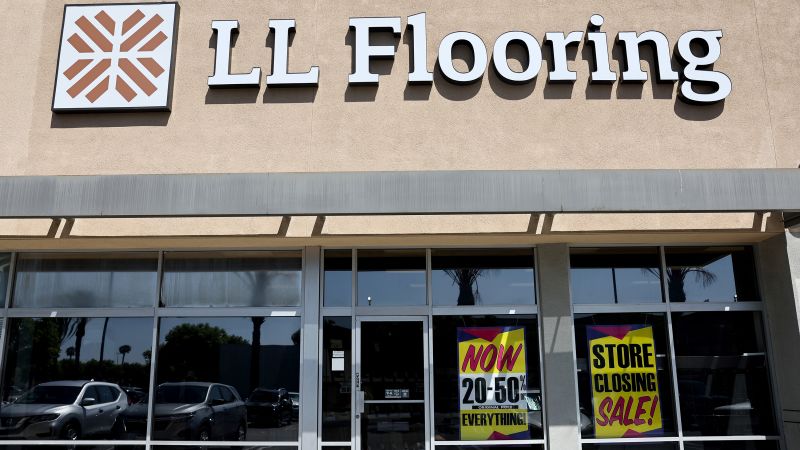LL Flooring, formerly known as Lumber Liquidators, has filed for bankruptcy and will close 94 of its stores across the United States. However, the retailer is not immediately liquidating itself, but has instead entered Chapter 11 bankruptcy, which allows for a re-organization rather than a complete shutdown of the business. The company is actively seeking a sale of its 30-year-old business and is currently in negotiations with multiple bidders.
Major furniture retailers are facing challenges following a pandemic boom, particularly as Americans contend with persistent inflation. Discretionary big-ticket items like furniture have fallen out of favor for more budget-conscious consumers, making it difficult for companies like LL Flooring to thrive in the current economic environment. CEO Charles Tyson stated that the decision to file for Chapter 11 was made after efforts to improve liquidity amid challenging conditions, and the process allows the company additional time and financial flexibility as they reduce their physical footprint and close certain stores.
LL Flooring, which rebranded in 2021, operates approximately 300 locations and offers 500 varieties of hard-surface floors. The company has secured $130 million in debtor-in-possession capital to sustain operations and continue paying vendors. A list of store closures is available on the company’s website, reflecting the challenging retail landscape that has forced many companies to make difficult decisions in response to changing consumer spending habits.
The shift in consumer behavior towards cutting back on non-essential spending has significantly impacted retailers across the industry, leading to the bankruptcy filings of furniture chains Z Gallerie and Mitchell Gold + Bob Williams, as well as the downsizing of Wayfair’s workforce. Conn’s HomePlus, a longstanding furniture and electronics retailer, also recently filed for bankruptcy and is closing all of its stores. In addition, Big Lots has announced plans to close a quarter of its stores, highlighting the widespread challenges faced by companies in the furniture retail sector.
The current economic environment, characterized by inflation and changing consumer preferences, has created a challenging landscape for retailers like LL Flooring. With the closure of nearly 100 stores and a focus on reorganizing the business through Chapter 11 bankruptcy, the company is working to navigate these difficult conditions and secure a sale that will allow it to continue operating. The availability of debtor-in-possession capital provides some financial stability during this process as the company adjusts its operations to align with evolving consumer trends.
As the retail industry continues to grapple with ongoing challenges, companies must adapt to changing consumer behaviors and economic conditions to remain viable. The bankruptcy filings and store closures seen in the furniture sector are indicative of broader shifts in the retail landscape, with companies facing increased pressure to streamline operations and focus on core business strategies. LL Flooring’s decision to pursue a going-concern sale while closing select stores reflects the complexities of operating in a competitive and rapidly changing market, where companies must continuously assess their strategies to stay relevant and profitable.


